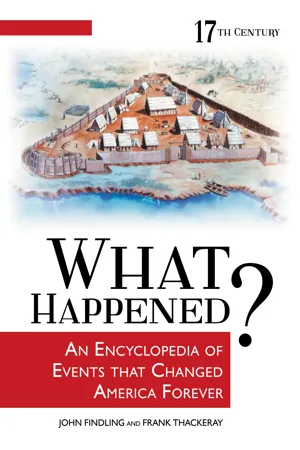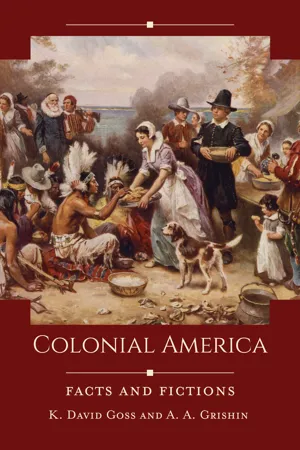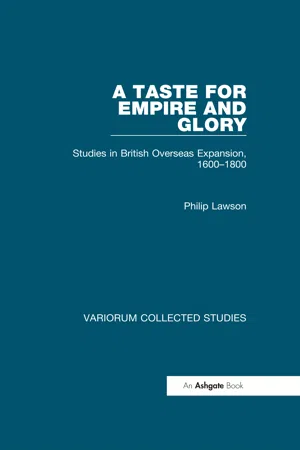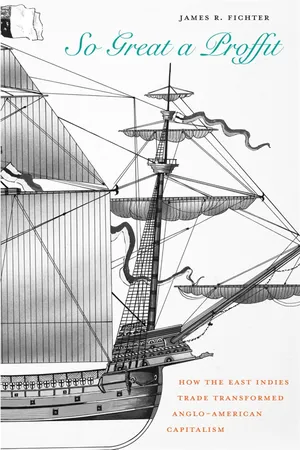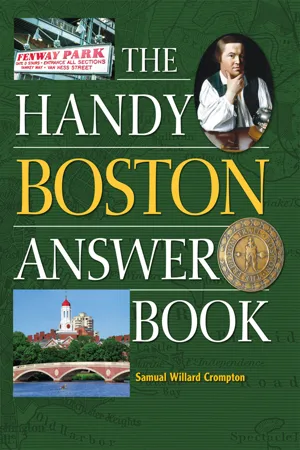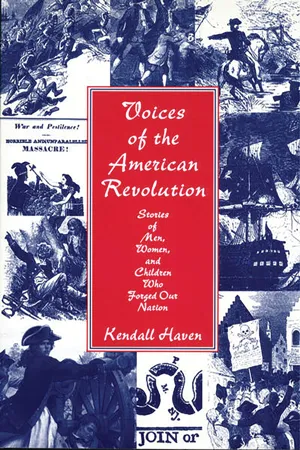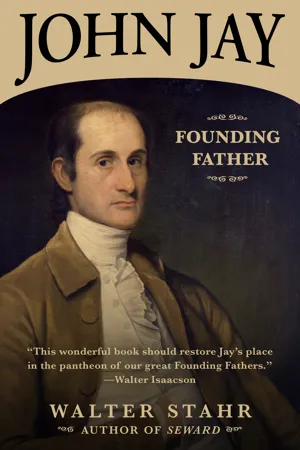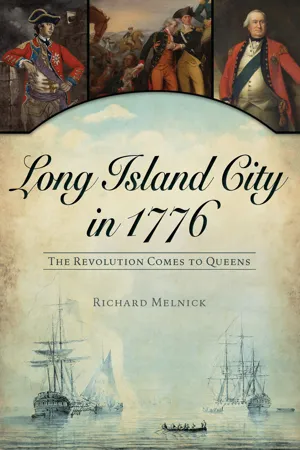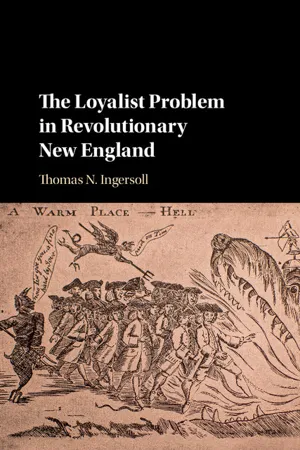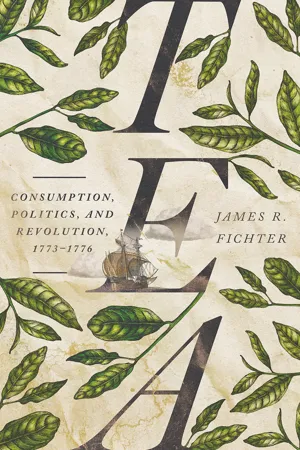History
Boston Tea Party
The Boston Tea Party was a political protest that took place on December 16, 1773, in Boston, Massachusetts. It was a key event in the lead-up to the American Revolution and involved colonists disguising themselves as Native Americans and dumping chests of tea from British ships into the Boston Harbor to protest against the Tea Act, which they viewed as unfair taxation without representation.
Written by Perlego with AI-assistance
Related key terms
1 of 5
11 Key excerpts on "Boston Tea Party"
- eBook - PDF
- John E. Findling, Frank W. Thackeray, John E. Findling, Frank W. Thackeray(Authors)
- 2010(Publication Date)
- ABC-CLIO(Publisher)
By p.m., the fateful Boston Tea Party, an action in direct defiance of British rule in the colonies, was under way. Somewhat inexplicably, none of the British troops stationed just outside Boston attempted to intervene, nor did the determined but sensibly cau- tious Governor Hutchinson. There can be little question as to the importance of the Boston Tea Party in the countdown to the Revolution; virtually all historians of the era have remarked on its paramount significance as the spark that set off the powder train of events that turned the colonies from dissatisfaction and resistance to outright opposition and revolution. The action of the “Mohawks” in Boston Harbor presented the most direct and tumultu- ous challenge yet to British imperial authority in the increasingly troubled relationship between the mother country and its colonies, far more than the Stamp Act or Town- shend Duties disputes of the s or the violent incident in known as the Boston Massacre. Colonists of all persuasions, the British government, and the English people alike perceived the Tea Party as the crisis that would precipitate a decision on whether the North American provinces would remain British colonies or would break away to become independent, separate states. Viewed from the colonists’ perspective, Boston’s strong stand had the immediate effect of dramatizing radicals’ claims that the duty on tea represented a conspiracy to compel recognition of Parliament’s powers of taxation. The Boston patriots’ action stiff- ened the spines of other tea tax resisters, and, as the news of their action spread, by early opposition to the tax had spread to all corners of the colonies. The example in Massachusetts overcame the lethargy that had beset radicals to this point elsewhere in the colonies, especially on the question of paying Parliament’s impost on imported tea. Before the year ended, virtually every colony had been the site of violent protest against dutiable tea. - eBook - ePub
Colonial America
Facts and Fictions
- K. David Goss, A. A. Grishin(Authors)
- 2021(Publication Date)
- ABC-CLIO(Publisher)
The People of Charlestown collected what Tea they could find in The Town & burnt it in the View of a thousand Spectators. There was found in the House of One Withington of Dorchester about half a Chest of Tea—the People gathered together & took the Tea, Brought it into the Common of Boston & Burnt it this night about eleven o Clock. This is supposed to be part of the Tea that was taken out of the Ships & floated over to Dorchester. (Rowe and Pierce 1903, 259)For Rowe, it seems that the symbolic burning of the tea in Boston’s neighborhoods was a no less spectacular event than the effort to relieve three ships of their cargo. This festive bonfire (from Thomas Newell’s diary, we also know that punch and wine were aplenty at this event), perhaps welcoming a new era, also did not constitute a daring criminal act. The fuel for the blaze was primarily furnished by a communal pantry cleaning, with the addition of some flotsam and jetsam in the form of utterly ruined merchandise of the East India Company.Along the American East Coast, ships carrying tea from Britain during that period of time were either turned back or their cargo was dumped in the water or burned. A year later, in Annapolis, the brig Peggy Stewart, loaded with tea, was set aflame by its owners, who were severely threatened by the townsfolk. These other episodes have become largely forgotten on the national level, but the Boston Tea Party became a single representative event for the early resistance to the British governance over the colonies in North America. The episode itself was simplified, cleverly rebranded and stripped of any complications and ethically uncomfortable elements.What Really HappenedIn the 1760s, the British government decided on a series of measures designed to mitigate the heavy debt that the country had incurred during the Seven Years’ War. This military conflict extended to the American continent, where it was known as the French and Indian War. Many of the costs incurred by the British troops were directly linked to their operations in North America. Unsurprisingly, the Sugar Act, put into effect in 1764, was Parliament’s first attempt to tax the American colonies for the purposes of raising the empire’s revenue. This act was meant to replace the Molasses Act, due to expire in 1763, which had been largely regulatory and not strictly enforced. - eBook - ePub
A Taste for Empire and Glory
Studies in British Overseas Expansion, 1600–1800
- Philip Lawson, David Cannadine, Ken Munro(Authors)
- 2020(Publication Date)
- Routledge(Publisher)
65In conclusion, rather than rehash accounts of these events and their outcome, it is worth reiterating the importance of tea as a symbol and vehicle of protest and violent dissent. After news reached London in late January 1774 of the events in Boston, outrage led Parliament to support a policy of isolating and punishing the town. In this process, most of the arguments offered by the Americans to explain the action against tea were ignored. Yet, scratching beneath the surface of the whole debate on tea in Britain and its wider imperial significance, does reveal that the Americans had some telling points to make. And, furthermore, their reservations about reorganizing the tea trade were shared by many in Britain at the time. The focus of this unease on both sides of the Atlantic was the monopoly power of the East India Company that controlled the supply of tea in the Atlantic world. Monopolies were seen as undesirable, even evil, as they restricted personal liberty and ruined, what eighteenth-century critics of the Company called, the ‘fair-trader’. This anti-monopoly rhetoric was well established in the Anglo-American political tradition and came to the fore in the Tea Party debate. No less important was the identification of tea as a symbol of British decadence and decay. After the Coercive Acts to punish Boston passed in 1774, the Americans went into a tea denial phase, as an act of solidarity and patriotism in sympathy for those resisting the evil monopolistic Company and its corrupt government in London.66 A great many of the ideas in this exchange began in Britain as a reaction to the social and cultural impact of tea drinking. The rituals of tea consumption were viewed as effeminate, being controlled as they were by women. They encapsulated and encouraged the luxury and licentiousness that the Reformation of Manners movement found so objectionable. Tea drinking, in other words, represented a corrupting moral force in society. British commentators presented and refined these arguments before the 1770s, American protestors then leaped on the bandwagon without hesitation when the opportunity presented itself.67 - eBook - PDF
So Great a Proffit
How the East Indies Trade Transformed Anglo-American Capitalism
- James R. Fichter(Author)
- 2012(Publication Date)
- Harvard University Press(Publisher)
In New Jersey and Maryland, whole shiploads of tea were burned. In the former state the mob, as in Boston, dressed as “Indians.” Boston held a second tea party in 1774, this time with the colonists play-ing Narragansetts. 32 Patriot actions were widespread. After the Boston Tea Party, the colonists leaped from opposition to the Company’s tea to opposition to any tea at all. This was due 16 . So Great a Proffit at least in part to a not wholly unreasonable fear that if Dutch tea were allowed, the newly affordable Company tea would be smug-gled under the same name. But the campaign against tea, waged by mobs, policed by committees of safety (the revolutionary euphe-misms which assumed authority for the Patriots), and propagan-dized by radical newspapers, became more than protest. Through its enforcement, it became part of the Patriot experience in orga-nizing the extralegal governments on which a more-sustained ac-tion would depend. It was this political groundswell that the tea dealers had been so quick to join: better to lose their tea and keep their shops than risk both. It was well they did. Tea became a measure of Patriotism in the colonies. Americans who continued to own and consume it were often making a deliberate point of their loyalty to Britain. Ameri-cans who destroyed or burned it made a public point of their Patriotism. Tea was, in Breen’s phrasing, a “major article in the de-velopment” of colonial consumer society, and it was one of the few goods with which nearly every American could show his or her colors because it was consumed, to varying degrees, at many levels of American society. Even the inmates of Philadelphia’s poorhouse took tea, though they were given only low-grade bohea. Because of the prevalence of tea in the colonies, the tea burnings had a wide reach, drawing the attention of colonists who before 1773 might not have cared about politics so fervently. By participating, many Americans made Boston’s resistance to tea their own. - eBook - ePub
- Samuel Willard Crompton(Author)
- 2016(Publication Date)
- Visible Ink Press(Publisher)
Immediately. Just minutes after Adams uttered those words, war whoops were heard, and scores of men—most of them dressed as Mohawk Indians—were seen on the street, headed for Griffin’s Wharf. Arriving at the wharf, the 150-odd men boarded the three ships. No violence was offered to the sailors, but the chests of tea were brought to the main deck, broken open with hatchets, and the contents unceremoniously heaved into Boston Harbor. One aspect which is often overlooked is that the tide was low that evening, and that the tea settled on to the wharf area, stinking up the surroundings!Within ninety minutes, the “Destruction of the Tea,” as the Bostonians called it, was complete. Three hundred and forty-two chests of tea had been heaved over the side of the ships, and the “Mohawks” went home, presumably to celebrate. British Admiral Sir John Montagu happened to stay ashore that evening, and he called out that the Bostonians had had their fun, but they would soon have to pay the piper. He was right.Do we have any first-hand accounts of the Boston Tea Party?One of the most famous acts of defiance before the actual revolution was the Boston Tea Party of 1773, when colonists dressed as Indians boarded three British ships and dumped their cargoes into the harbor.Our best account comes from the mouth of George Robert Twelves Hewes (1742–1840). Decades after the event, and just shortly before his own death, Hewes related his experience to not one but two biographers, and his stories provide our best understanding of the Tea Party.“When we arrived at the wharf,” Hewes wrote, “there were three of our number who assumed an authority to direct our operations, to which we readily submitted. They divided us into three parties, for the purpose of boarding the three ships which contained the tea at the same time.” None of the sailors aboard the tea ships offered any resistance, and the Americans quickly went about their work, which sounds as if it all was accomplished within an hour and a half.Did Bostonians really think they would get away with it?They did. Bostonians were appalled in the spring of 1774, to learn that King George III and Parliament had slapped a series of new acts upon them. These laws were not about taxes; they were much more important than that. The Massachusetts Government Act formally closed Boston as the seat of royal government, removing it to Salem. The Boston Port Act closed the port until the tea was paid for. And the Quartering Act asserted that Bostonians would have to house troops in their homes until further notice. King George III and his ministers called these the Coercive Acts, but Bostonians soon labeled them the Intolerable Acts. The latter title is the one that stuck. - eBook - PDF
Voices of the American Revolution
Stories of Men, Women, and Children Who Forged Our Nation
- Kendall Haven(Author)
- 2000(Publication Date)
- Libraries Unlimited(Publisher)
1775, August General Wayne leaves with a force to attack Quebec. Liber . . . Tea The Boston Tea Party, December 17, 1773 !i Boston Tea Party At a Glance Everyone drank tea in America. It was the national drink. Only a few in the bigger cities preferred coffee. Tea and rum—and occasionally a bit of water— that's what co- lonial Americans drank. Tea was supplied to America by the British East India Company, a huge commer- cial venture created by British nobles to exploit the resources of every remote and ex- otic corner of the far-flung British empire. One of the products the British East India Company exported from India was tea—tons and tons of tea. For the company to make profits and for England to remain solvent, people all over the world needed to drink this tea. The growing anti-British crowd in the Americas drank Dutch East India Com- pany tea smuggled into various ports and sold at great profit because smuggling avoided all British taxes. Dutch tea was illegal because, as an English colony, Ameri- cans were required to trade exclusively with British companies. It was all a question of profits for the British East India Company and tax revenue for the British government. Parliament had been trying for years to squeeze a profit out of the Colonies. But for Americans to cut back on tea consumption would be disastrous. So, clever English politicians (who owned large shares in the British East India Company) devised a scheme to increase American tea drinking: drop the price of tea. Technically, what they did was allow the company to not pay import duties (dropping tea prices) and also increased the colonial tea tax (but not as much as the drop). 4 Liber ... Tea / 5 As long as the price of tea was lower, the Colonists wouldn't care if they were paying more tax, right? Wrong! Samuel Adams's Committees of Correspondence and his Sons of Liberty were desperately searching for a propaganda issue to stir up anti-British sentiments. - eBook - ePub
Religion and the American Revolution
An Imperial History
- Katherine Carté(Author)
- 2021(Publication Date)
- Omohundro Institute and UNC Press(Publisher)
8After the Boston Tea Party, the immediate reaction of religious leaders in New England was cautious. Th ey had to balance their assumption that imperial authority would continue in America, their belief that civil disorder was undesirable, and their personal views on the events themselves. Duxbury, Massachusetts, minister Charles Turner preached a sermon only a few days after the destruction of the tea, at a ceremony commemorating the founding of Plymouth. Turner was no fan of parliamentary authority. His Massachusetts election-day sermon, a few months before, had urged resistance. But now he spoke in less strident terms. He vindicated the Pilgrims’ devotion to religious liberty but also defended them against being “reproached” as “schismatics .” Devotion to a dissenting view of religious liberty, in other words, did not mean embracing division. At the same time, he argued that Plymouth’s beginnings had been “pregnant with empire,” the first plantings of great things to come, and he reinforced his point with an explicit quotation from Shipley’s recent SPG sermon: “Perhaps the annals of history have never afforded a more grateful spectacle to a benevolent and philosophic mind, than the growth and progress of the british Colonies of North-America .” He added, “We chearfully hoped, that all the absurd popish doctrines and wicked devices of spiritual and civil oppression will fall into utter contempt” and that balance “between the power of rulers and privileges of the people, in matters civil and ecclesiastical, will be held with a steady, wise, and unerring hand.” He applauded resistance to an Anglican bishop and rejoiced in the “future greatness and happiness of our country,” but his spirits were “damped” when he thought of their “present political embarrassments, together with our sinfulness.” Better, he argued, to “nourish that spirit of christianity, which implies the spirit of liberty and union” so that they might find “deliverance out of all tribulation” and “not be ruined thereby.” Turner omitted specific comment on the destruction of the tea and avoided explicit rejection of parliamentary authority. In a moment where the best course of action was not clear, pious contemplation of basic principles was called for. If “standing fast in the cause of liberty and dissenting religion” was the “cause of God,” then they should do so, but it was not a step to be taken lightly.9 - eBook - ePub
John Jay
Founding Father
- Walter Stahr(Author)
- 2012(Publication Date)
- Diversion Books(Publisher)
Chapter 3: Resistance Leader
N EW YORK enjoyed a period of political peace from late 1770 through early 1773. In October of that year, however, New York learned of a new Act of Parliament, imposing a modest tax on tea imported into the colonies. Many New Yorkers saw this as yet another example of improper “taxation without representation.” A poster signed by the “Sons of Liberty” appeared, pledging that the group would “treat as enemies” anyone who imported, purchased or used tea which had paid the duty. At a mass meeting outside the City Hall, the crowd shouted that it would not allow East India tea to be landed in New York. Several months passed, however, before the first ships bearing tea arrived in New York harbor. When they did, following the earlier example of Boston, some New Yorkers boarded a ship and dumped the tea into the harbor. “It was not without some risk of his life” that the captain escaped to another ship in the harbor.1This New York City tea party was held in late April 1774, just a few days before the Elizabeth Town wedding of John Jay and Sarah Livingston. The newlyweds spent most of May in rural New York, visiting relatives and attending to John’s law practice. He probably read in a newspaper at some point during May how Parliament, in retaliation for the Boston Tea Party, had closed Boston harbor and suspended civil government in Massachusetts. But he was not aware, until he returned to the city from the northern counties in late May, that he had been named to “the committee appointed by the city to take into consideration the measures of Parliament relative to Boston.”2The fifty-one members of this committee ranged from radicals such as Alexander McDougall and Isaac Sears to conservatives such as John DeLancey and Peter Van Schaack. When the full committee met for the first time, it appointed a subcommittee of four, including John Jay and James Duane, to prepare a response by eight that evening to a letter from Boston. How to respond was far from obvious. The radicals wanted to support Boston by agreeing that New York would immediately cease to import British goods. But New York’s merchants were unwilling to agree to such a boycott, at least not until the rest of the colonies agreed to a similar measure. It is thus perhaps not surprising that the subcommittee called for a general continental congress. The New York letter, drafted by Duane based on Jay’s notes, called for a meeting of delegates from all colonies to consider the “deplorable circumstances” of Boston and how best to protect “our common rights.”3 - eBook - ePub
Long Island City in 1776
The Revolution Comes to Queens
- Richard Melnick(Author)
- 2023(Publication Date)
- The History Press(Publisher)
Chapter 2 1774–1775From Rebellion to WarIn the British North American colonies, the year 1774 began under the audacity of the recent December 16, 1773 Boston Tea Party. A revolutionary fervor began to strike the iron hot in wintry New England. The steam of cooling metals for muskets and swords did not cloud the spectacles and minds of the continent’s greatest thinkers.Men of means saw that bold words must result in greater actions. These British subjects, soon to be the first Americans, were also skilled doers in their respective colonial fields, the various trades that provided sustenance to the colonists. They were learned men, men of letters and scholarship. Those seeking liberty were also working men, ordinary men, some not formally educated and some on the lower rungs of society but all highly motivated. Many of the men in the city of New York worked very hard to achieve their place in the colony. Newtown residents in Queens County were no exception. Many Newtowners served the needs of the Crown in a variety of capacities. The question that many would soon have to answer was: Would the British North American colonies revolt against their mother country? Had Mother Britain not taken the greatest care to provide her subjects with land, opportunity and safety?The year 1774 was the beginning of the final phase of misunderstandings between the king and his American subjects. The colonists were to unite and agitate for drastic change. The king’s options to counter insurrection were few. Negotiation was a poor option. Continued punitive economic acts and measures might not work. The next option was to use force to defeat the impending revolt. Remember the Jacobites at Culloden. The revolutionaries must be crushed. From March through June 1774, Great Britain passed punitive laws, the Coercive Acts, to respond to the defiant Boston Tea Party. These Coercive Acts by the British Parliament were referred to as the Intolerable Acts by the subject American colonists. Queens County men and their wives were set to take sides in the heated political discussion. Important to local Newtown politics was that “the rumblings of the Revolution were beginning to be felt. Colonel Jeromus Remsen was accordingly placed at the head of the Town.” On April 5, 1774, at a public town meeting, the town leaders “also voted that Jeromus Remsen Junr. shall be Supervisor.”5 - Thomas N. Ingersoll(Author)
- 2016(Publication Date)
- Cambridge University Press(Publisher)
For, as Abigail Adams put it to Mercy Otis Warren just days before the event, New England radicals were now saying, with ancient Rome’s Cato, “what a pity it is, that we can dye but once to save our country.” 15 birth of a revolutionary “country” The crime of December Sixteenth shocked and incited: everyone had to choose sides. In Parliament, sympathizers were few. Lord North denounced the act by which the Bostonians had made a “Declaration of their own Independence.” 16 The great Chatham was among those who demanded the colonists’ “full and entire submission.” 17 The rul- ing sentiment in the House of Commons was that the “the Americans were a strange set of people, and that it was vain to expect any degree of reasoning from them”; as for the Tea Party, it was “the proceed- ings of a tumultuous and riotous rabble.” 18 The colonists’ best friend in the Commons, Isaac Barr´ e, son of an Irish Protestant grocer, sup- ported the closing of Boston’s port. 19 The king inquired with undisguised 122 Rebels and Loyalists December 16, 1773 to September 1774 delight if any of the perpetrators could be brought up on charges of high treason. 20 Soon after the Tea Party, an awful incident in the street served to keep the spirit of December Sixteenth on the boil through the winter – the John Malcolm affair. A determined and hated English customs official, he stirred up popular anger when he took his cane to the head of feisty rebel tradesman George Robert Twelves Hewes on January 25, 1774. It was reminiscent of the beating of James Otis Jr. in 1769 by a British official. A crowd formed, tried to get into Malcolm’s house, and he injured one of the men with his sword, further inflaming the people. They pressed in, disarmed and arrested him, carted him, bound, to Liberty Tree, exposed him in the cold, tarred and feathered him, and made him stand on a gallows with a noose around his neck, threatening him with death if he persisted in ridiculing the rebels.- eBook - ePub
Tea
Consumption, Politics, and Revolution, 1773–1776
- James R. Fichter(Author)
- 2023(Publication Date)
- Cornell University Press(Publisher)
Opposition to tea in 1774 was changing, partial, and inchoate. As part of their campaign, Patriot sources made opposition to tea look impressive, and we must read such sources carefully to see the gradualism of and resistance to their ban. By November 1774, Charleston Patriots had been campaigning against tea for a year but were only just then implementing their Association’s orders. 7 This chapter examines the fits and starts of the move toward non-consumption in 1774: the gradual disuse of tea, which involved frequent backsliding; the role of coercion in the Patriot campaign; the tea parties and the various non-canonical intentions behind them, which Patriots obscured; enforcement and continued consumption; the storage of large quantities of tea in 1774 (which risked being drunk in 1775); and the Loyalist response. The Gradualism of Disuse It is tempting to interpret swift bans on tea sales as signs of an emerging consensus against the product. In Massachusetts, some towns responded to the Boston Tea Party with bans on tea sales: forty towns by April 1774. But this was forty towns out of nearly two hundred, hardly an expression of general will. Only five of the towns banning tea banned all tea consumption outright: Worcester, Acton, Lunenburg, Charlestown, and Boston. The rest allowed Dutch tea sales to continue. 8 It took nearly a year to ban tea in Massachusetts, too. This reflected the difficulty in convincing Massachusettsans to see tea as a political and not a consumer product. Declarations of support were easy: The General Assembly endorsed the tea boycott in the spring of 1774. But when John Hancock advocated in his Boston Massacre speech “total disuse of tea in this country, which will eventually be the saving of the lives and estates of thousands,” his formulation—“eventually”—suggested people in “this country” were not doing it yet. In June, the General Assembly again resolved that colonists should “renounce consumption” of tea
Index pages curate the most relevant extracts from our library of academic textbooks. They’ve been created using an in-house natural language model (NLM), each adding context and meaning to key research topics.
